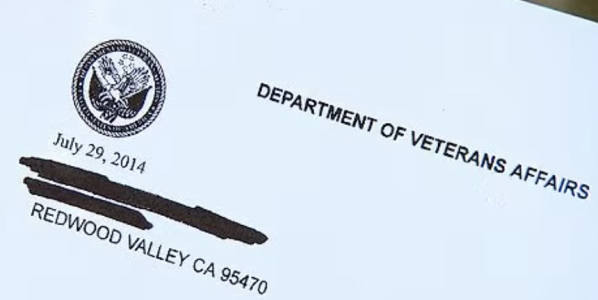Caregivers of veterans just got three more years of support—here’s what to know
By
Veronica E.
- Replies 0
If you or a loved one has ever stepped into the role of caring for a veteran, you know how important consistent support can be.
From managing medical needs to offering daily assistance, caregivers provide a lifeline—and in many cases, they need one too.
That’s why the latest announcement from the Department of Veterans Affairs (VA) is welcome news: a key benefit that was set to end soon is being extended.
This move aims to protect thousands of families from sudden loss of critical resources while the VA continues refining its caregiver programs.
Here’s what’s changing, who’s eligible, and what to expect moving forward.

Caregiver assistance extended through 2028
The VA’s Program of Comprehensive Assistance for Family Caregivers (PCAFC) is designed to support family members caring for veterans who were seriously injured or became ill in the line of duty.
The program provides monthly stipends, health insurance, counseling, respite care, and training.
However, not all caregivers have had equal access—especially those supporting veterans who served before September 11, 2001.
That’s now changing.
The VA has announced an extension of eligibility for so-called "legacy" participants and applicants through 2028.
This decision affects veterans and caregivers who were part of the PCAFC before October 1, 2020.
Nearly 15,000 families are expected to benefit, gaining three more years of stability as the VA works to update eligibility rules and streamline the application and reassessment process.
Also read: He searched for his Army buddy for 40 years—what he found on the doorstep will stay with you
Who qualifies under this extension?
To clarify the VA’s language:
If you or a loved one fits either category, the extension means you won’t lose access to PCAFC benefits while the VA finalizes its long-term program structure.
That includes financial support, health coverage, and other services aimed at helping caregivers sustain their role.
Also read: Hero’s mission: Veteran who lost his legs in Iraq battles to stop “wounded warriors” tax
Why this matters for families
For many caregivers, this isn’t just about paperwork—it’s about daily life.
The PCAFC can help families avoid placing loved ones in long-term care facilities, reduce out-of-pocket expenses, and give caregivers the tools they need to manage complex health needs.
The original concern was that shifting rules might push legacy families out of the program before new policies were in place.
This extension offers peace of mind and much-needed consistency.
VA Secretary Doug Collins emphasized the department’s commitment: "Legacy caregivers have helped shape VA’s Caregiver Support Program for many years. This decision underscores VA’s commitment to Veterans and caregivers across the nation and will help provide consistency and stability to nearly 15,000 legacy participants for years to come."
Also read: Protect Your Savings: How a Veteran Lost $40,000 in a Heart-Wrenching Post-Hurricane Scam
More changes underway at the VA
This caregiver program extension is part of broader legislative and budgetary updates impacting the VA.
Here are some of the key developments:
Also read: Big changes for veterans’ families: What the new VA survivor benefits mean for you
What veterans and caregivers should do next
To ensure continued access to support, here are a few practical steps:
Caring for a veteran is a commitment that deserves steady, reliable support—and this extension helps ensure that families won’t be left behind.
As policies continue to evolve, staying informed and connected to available resources is more important than ever.
Read next: Leaked memo reveals around 80,000 jobs at risk! Major workforce shake-up under Trump administration.

Have you navigated the PCAFC or other VA caregiver programs? Your insights could help others in the community who are just starting their caregiving journey. Share your story in the comments—whether it’s a tip, a challenge you’ve faced, or a way the program has helped your family.
From managing medical needs to offering daily assistance, caregivers provide a lifeline—and in many cases, they need one too.
That’s why the latest announcement from the Department of Veterans Affairs (VA) is welcome news: a key benefit that was set to end soon is being extended.
This move aims to protect thousands of families from sudden loss of critical resources while the VA continues refining its caregiver programs.
Here’s what’s changing, who’s eligible, and what to expect moving forward.

The VA’s extended caregiver program offers critical support for families caring for veterans across the country. Image Source: YouTube. /CBS Mornings.
Caregiver assistance extended through 2028
The VA’s Program of Comprehensive Assistance for Family Caregivers (PCAFC) is designed to support family members caring for veterans who were seriously injured or became ill in the line of duty.
The program provides monthly stipends, health insurance, counseling, respite care, and training.
However, not all caregivers have had equal access—especially those supporting veterans who served before September 11, 2001.
That’s now changing.
The VA has announced an extension of eligibility for so-called "legacy" participants and applicants through 2028.
This decision affects veterans and caregivers who were part of the PCAFC before October 1, 2020.
Nearly 15,000 families are expected to benefit, gaining three more years of stability as the VA works to update eligibility rules and streamline the application and reassessment process.
Also read: He searched for his Army buddy for 40 years—what he found on the doorstep will stay with you
Who qualifies under this extension?
To clarify the VA’s language:
- Legacy participants are veterans and caregivers already enrolled in the PCAFC as of September 30, 2020.
- Legacy applicants are those who applied before October 1, 2020, and were approved afterward.
If you or a loved one fits either category, the extension means you won’t lose access to PCAFC benefits while the VA finalizes its long-term program structure.
That includes financial support, health coverage, and other services aimed at helping caregivers sustain their role.
Also read: Hero’s mission: Veteran who lost his legs in Iraq battles to stop “wounded warriors” tax
Why this matters for families
For many caregivers, this isn’t just about paperwork—it’s about daily life.
The PCAFC can help families avoid placing loved ones in long-term care facilities, reduce out-of-pocket expenses, and give caregivers the tools they need to manage complex health needs.
The original concern was that shifting rules might push legacy families out of the program before new policies were in place.
This extension offers peace of mind and much-needed consistency.
VA Secretary Doug Collins emphasized the department’s commitment: "Legacy caregivers have helped shape VA’s Caregiver Support Program for many years. This decision underscores VA’s commitment to Veterans and caregivers across the nation and will help provide consistency and stability to nearly 15,000 legacy participants for years to come."
Also read: Protect Your Savings: How a Veteran Lost $40,000 in a Heart-Wrenching Post-Hurricane Scam
More changes underway at the VA
This caregiver program extension is part of broader legislative and budgetary updates impacting the VA.
Here are some of the key developments:
- Temporary increase in burial benefits: Under the Dole Act (Senator Elizabeth Dole 21st Century Veterans Healthcare and Benefits Improvement Act), eligible veterans and families may receive full burial cost coverage for a limited time.
- Proposed funding boosts: A recent proposal from House Republicans would allocate $453 billion to the VA for fiscal year 2026. The current administration is also advocating for major increases in medical care funding and service access.
- Policy debates ahead: Discussions are ongoing around issues like reproductive health coverage, vaccine mandates, and firearm access. While these topics may influence future VA policies, core benefits remain in place for now.
Also read: Big changes for veterans’ families: What the new VA survivor benefits mean for you
What veterans and caregivers should do next
To ensure continued access to support, here are a few practical steps:
- Confirm your eligibility
If you’re not sure whether you fall under the “legacy” category, reach out to your local VA Caregiver Support Coordinator. - Stay connected
The VA will provide more details in the coming months. Sign up for updates or check the VA Caregiver Support site for new information. - Speak up if you need help
If you’re running into delays or confusing paperwork, don’t hesitate to ask questions or file an appeal. Your input helps improve the system for everyone.
Caring for a veteran is a commitment that deserves steady, reliable support—and this extension helps ensure that families won’t be left behind.
As policies continue to evolve, staying informed and connected to available resources is more important than ever.
Read next: Leaked memo reveals around 80,000 jobs at risk! Major workforce shake-up under Trump administration.
Key Takeaways
- The VA is extending its caregiver assistance program (PCAFC) through 2028 for legacy participants and applicants, protecting nearly 15,000 families from benefit disruption.
- Legacy participants include those enrolled before September 30, 2020, while legacy applicants are those who applied before October 1, 2020, and were later accepted.
- The extension is part of a broader update to VA services, including temporary increases in burial benefits under the Dole Act and ongoing efforts to boost funding for medical care.
- Veterans and caregivers are encouraged to confirm eligibility, stay informed through official channels, and speak up about their experiences to help shape future improvements.
Have you navigated the PCAFC or other VA caregiver programs? Your insights could help others in the community who are just starting their caregiving journey. Share your story in the comments—whether it’s a tip, a challenge you’ve faced, or a way the program has helped your family.






